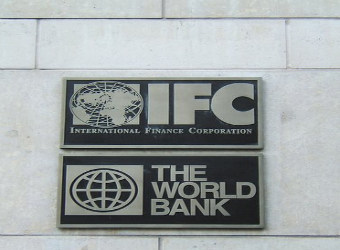The World Bank’s development arm is expected to triple its funding to Egypt to $1 billion in its current financial year from around $300 million in the previous year, an IFC official said Saturday.
The International Finance Corporation (IFC) provides more loans to countries undertaking reforms, IFC Middle East and North Africa director Mouayed Makhlouf told The National, saying Egypt set to be the key beneficiary in the year to June 2018.
Egypt is implementing a slew of reforms that helped the North African country get a $12 billion loan from the International Monetary Fund last year. These reforms include floating its currency in November and cutting energy subsidies.
“What helped is the reform of the Egyptian government and the very strong IMF programme that was adopted and agreed to with the IMF,” Makhlouf said.
“The very strong reforms [in Egypt] we haven’t seen in any other government in the region and we hope others follow, especially in North Africa.”
Around $700 million of the $1 billion the IFC expects to invest in Egypt this year is earmarked for renewable energy projects, he added. Around half of last year’s IFC lending to Mena went to climate-related activities.
IFC plans to boost lending to MENA countries by around 20 percent to $2 billion in the current financial year, and wants countries to speed up reforms to unlock further funding, its regional director further said.
Across the Mena region, IFC wants more private investment in projects and industries dominated by the public sector, which lacks the funding and capacity to operate most of these projects.
“Mena is a group of non-homogenous countries, but the one homogenous factor is the public sector dominance,” said Makhlouf.
“When you do make that switch from public to private, you are going to generate a lot of investment opportunities and that’s where we come in.”
The lender is also involved in new areas such as supporting institutions working with refugees or their host communities. It also aims to invest more in the water sector, with several countries in the region facing acute shortages.
The IFC also continues to make equity investments, which represent around 30 to 40 percent of its annual investments.
